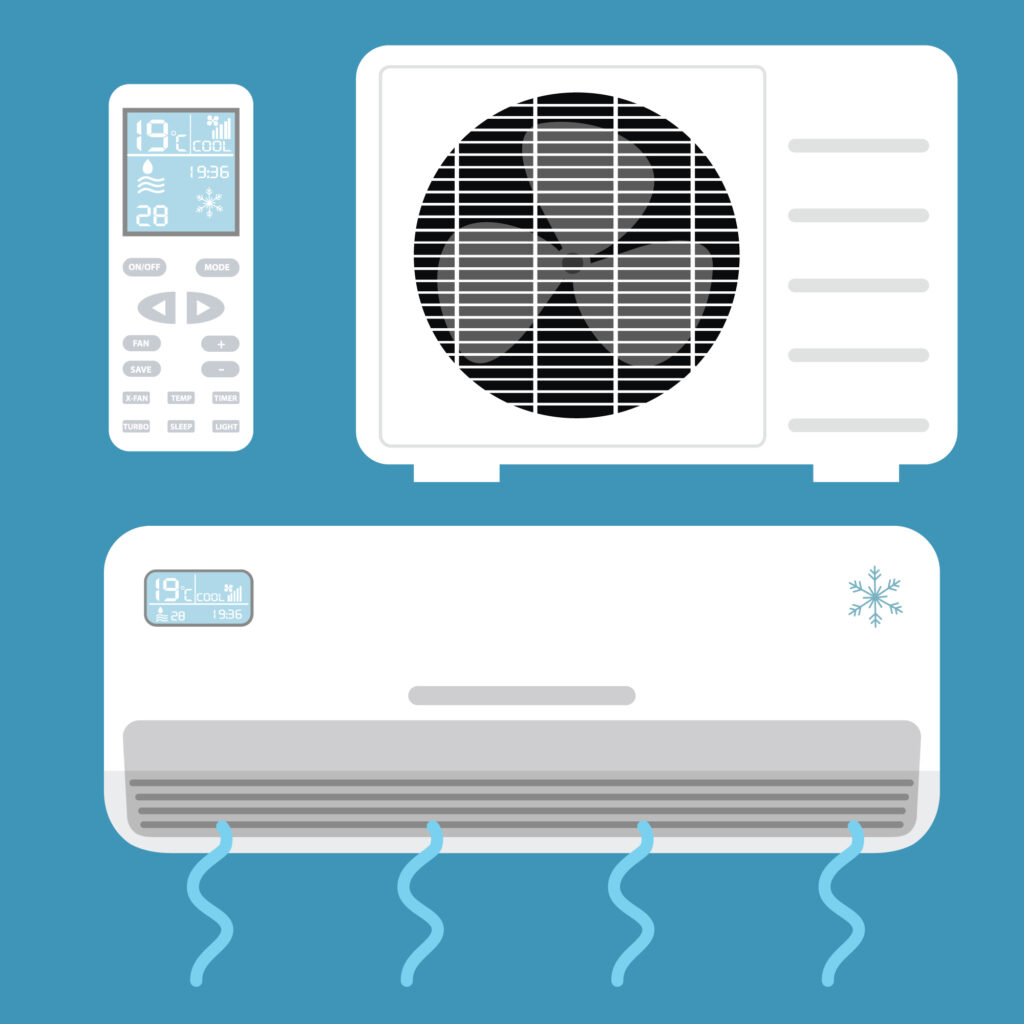
Why Does My Window AC Sound Like Water Running? | The sound of running water may be one of the most well-known sounds created by a window temperature control system.
When the air conditioning unit begins generating this commotion, it’s likely to make you very angry and irritated. Homeowners often wonder what could be causing it and how to fix the issue.
There are several potential reasons why a window AC may sound like water is running inside it.
In this article, we will explore the most common causes of this noise and provide solutions. We will likewise resolve a few, much of the time-posed inquiries about window unit sounds. By understanding what may be behind the water running noise, you can determine the best way to resolve the problem.
Common Reasons of water running sound in your window AC is: 1. Water dripping from the evaporator coil 2. Water melting down evaporator coil during defrost cycle 3. Water leaking from the drain pan 4. Object obstructing the blower fan 5. Broken or worn components
Contents
Why Does My Window AC Sound Like Water Running? [Cause & Easy Solutions]
We will Guide the most common causes of this noise and provide Worked solutions.
Water dripping from the evaporator coil:
As the forced air system attempts to cool and dehumidify the air in a room, dampness is gathered on the evaporator loop inside the unit. This curl attempts to coax heat out of approaching air, making water fumes gather.
The condensed water collects in a drain pan located below the coil. Gravity then causes the water to drip from the coil into the pan.
On high-humidity days, a large amount of water can accumulate, requiring frequent dripping. This dripping sound is often what homeowners describe as sounding like water running.
Water melting down evaporator coil during defrost cycle:
Another common cause of the water running sound occurs during the air conditioner’s defrost cycle.
On very low temperatures or high humidity days, moisture in the air can cause the evaporator coil to freeze up inside the unit, blocking airflow.
The AC unit has protective thermostats that sense this and initiate a defrost cycle where the coil is briefly heated up, melting any accumulated ice. The melting ice then drips down, sounding similar to running water.
Water leaking from the drain pan:
If water is collecting in the drain pan but not properly draining out via the hose, it can overflow and leak, potentially causing a water running sound.
Cracks, holes, or improper seals in the plastic drain pan are common causes of leaks. Inspect the pan for any damage, looking for signs of water stains around it.
Gently loosen mounting screws if needed and check for cracks before retightening.
Object obstructing the blower fan:
Window AC units contain an internal blower fan that draws air through the evaporator coil and then blows it out into the room.
If a small foreign object, such as paper, becomes lodged near or around the rapidly spinning fan blades, it can vibrate vigorously, making a noise resembling flowing water.
Insect carcasses trapped inside unit components are another common cause.
Broken or worn components:
On older window units, normal wear and tear can cause internal components to degrade, leading to abnormal noises.
Moving parts like bearings within the blower fan motor may fail, producing a rhythmic tapping or clunking.
Damaged fan blades striking the housing with each rotation create a knocking-type sound. Cracked or loose plastic parts can also vibrate audibly.
Conclusion:
By understanding the five most common causes of the water running noise in window ACs, homeowners can pinpoint likely issues and take corrective action.
From simple solutions like ensuring good airflow to more involved repairs, addressing the root problem eliminates an annoying symptom.
With proper maintenance, window units can operate smoothly and quietly through many seasons of use.
For incurable mechanical faults, timely replacement provides a refreshed cooling system. While some degree of operational sound exists, troublesome water running should not persist in a well-functioning AC.